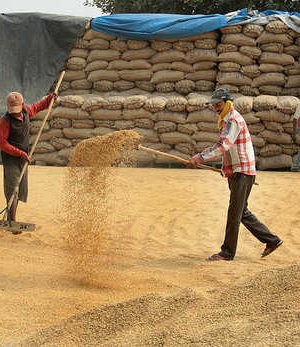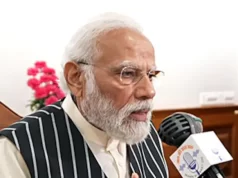A state government’s decision to raise market fee and rural development cess by 1 per cent each will prove to be an indirect taxation on lakhs of farmers, especially those growing basmati, cotton and horticulture crops.With market fee and rural development cess fixed at 3 per cent, the cash-strapped government aims to raise Rs 900 crore every year, keeping in view that state agencies procure most of the wheat and non-basmati paddy.
It, however, seems that the Cabinet took the decision in haste, without factoring in the cascading effect it would have on the farming community.Since two taxes have to be paid by buyers, government procurement agencies would be paying the taxes in case of crops procured by them. But for crops not under the purview of the procurement (MSP) regime, the buyers — cotton ginners, rice exporters and other private buyers of horticulture crops — will cut prices at which they buy crops from farmers to maintain their profit margins. Thus, about 5 lakh farmers will be hit by this “indirect taxation”.Sukhdev Singh Kokri Kalan, general secretary, of BKU (Ugrahan), told The Tribune that on one hand the government had gone back on its promises of debt waiver and, on the other, farmers would suffer as they would get less price for crops not covered under the Minimum Support Price (MSP).“The industry will cut prices to make profit. Farmers will suffer. We are already apprising farmers, who sell basmati and cotton in the open market, of what is in store for them. Soon, an agitation against the arbitrary decision will be launched,” he said.
Balkrishan Garg, president, Punjab Rice Millers’ Association, said buyers of basmati would have little option, but to give less price to farmers. “While five major rice shelling units are exempted from paying the two taxes, other units — already running in losses — will be unable to bear the tax burden and could pass it on to farmers,” he said.Another farmer leader Balbir Singh Rajewal feared the decision would impact the crop diversification plan. “In 2013-14, the government had done away with market fee and rural development cess on basmati to promote its cultivation over water-guzzling non-basmati varieties. Since last year, the government (then SAD-BJP rule) has been raising the fee,” he said.








